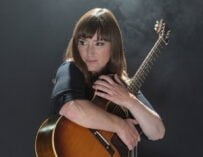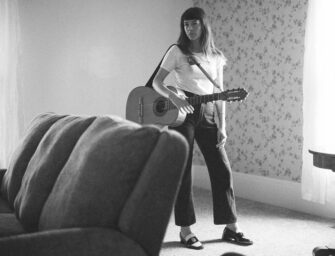The award-winning songwriter draws from four decades on stage and screen to offer tips on adding humour to your lyrics
TAKE IT OFFLINE
“Don’t write on a computer, always write in a notebook. Because, as the years past by, you have a fantastic souvenir of your attempts. Also, it’s important that you have the crossings-out – it’s not so much what you leave in, it’s what you scribble out – and you wouldn’t see that on a screen because you’d just delete it. Now, when I’m singing a new song, I’m imagining the page and I’ve memorised the hand-written lyrics, and I find that
very important.”
BOY CLIMBS TREE
“In terms of structure, I think back to John K. Cooper – my TV producer at London Weekend Television – because he gave me biggest tip that anyone has ever given to me in my life. He said, ‘Boy climbs tree, boy sits in tree, boy falls out of tree. That is every story, film, book… anything that’s ever written is in three stages.’ With your first verse, explain why the boy has climbed the tree. The second phase of the song is what he did in the tree. Maybe he rescued a cat, or picked apples, or whatever, and that’s the substance or beef of your story. And the third phase is how he fell out of the tree. Did he climb down, did he fall, did he rip his trousers? If you make the first phase about 10 percent of your song, and the last phase 10 percent, then you’ve got 80 percent in the middle to tell your funny story. I still use that format to this very day.”
SAVE YOUR BULLETS
“And what I would say about comedic writing is: don’t gild the lily when you do your opening verse or chorus. Don’t go in there and fire all six bullets out of your revolver. You’ve got to get the [listeners’] minds working the way yours is working, and takes them a little while to see where you’re coming from. And they’ll have an idea of where it’s going, but I don’t give it away – that’s the art of comedy. It’s like with a gag, the pay-off is the strongest point, so when you’ve paid it off don’t hang around at the end, just wrap it up and put it on the shelf.”
WAIT FOR IT
“But we’re not telling gags here – it can be so corny when it’s contrived – and with gags you haven’t got much time: tell the joke and get the laugh. The beauty of comedy writing is that you’ve got the time to set it up. It’s a very slow build-up to complete a good, funny song. In 1983, I had the British Academy’s Gold Award for the publishing of my 2,000th song and not one of those songs did I know how it was going to end. I didn’t have a clue. I might start with a funny idea, but until I’ve reached the end I won’t know what happens.”
TESTING TIME
“Despite having written all those songs, I never know whether they’re crap or whether they’re going to go down well until I’ve performed them live – that’s the litmus paper. There’s no way I can sit in my little room at home and think, ‘Wow, they’re going to love this.’ I genuinely can’t tell. In fact, even to this day, I’ll often pop off to an open mic and just try a new song out, just to see if it works. The bravery of comedy is the belief, that’s all it is.”
IMAGINE THAT!
“For someone who writes comedy, the key is imagination. Because none of us have ecstatically funny lives, so you have to have quite a vivid imagination to be a comedy writer, I think. For example, if a cat is walking through a garden, most people would just think, ‘That’s a lovely looking cat.’ Whereas I would go, ‘Where’s he going? Why has he left home? Has he had a row with his owner? Has he forgotten his suitcase’ and all of a sudden I can turn the pretty little cat into a villain, or whatever. That’s a stupid example, of course, but if you haven’t got the ability to overdrive your imagination, then I think you’ll struggle to be a comedy writer.”
PERFECT STRANGERS
“When you’ve written a song, never play it to someone you know. They’ll only go [with an insincere voice], ‘Ah that’s really funny.’ And those people will know if you’re lying through your teeth. You won’t have a close friend say to you, ‘I think that’s crap,’ but an audience will because they won’t clap or laugh! So don’t mark your song out of 10 until you’ve played it to strangers. Of course, that takes a huge amount of bravery because you’ve got to get up somewhere and perform, but until you’ve done that you won’t know the strength of your humour.”
Read more ‘Tips & Techniques’ features here




































Related Articles